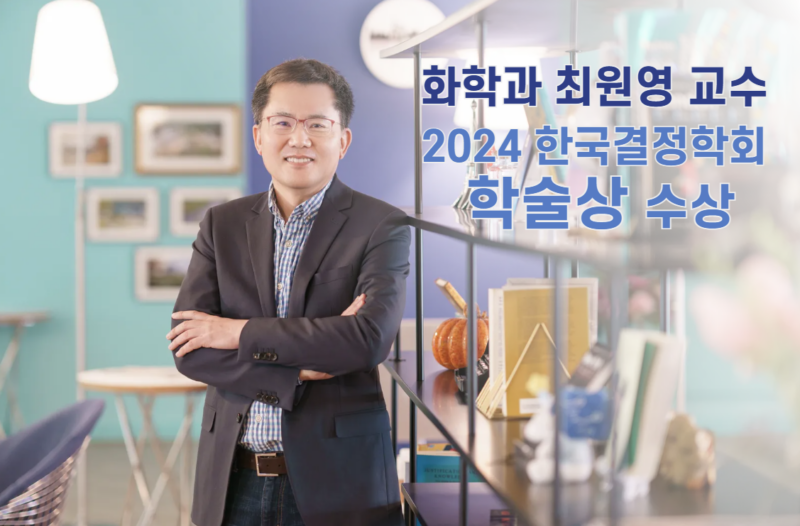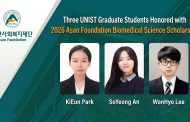Professor Wonyoung Choe from the Department of Chemistry at UNIST was honored with the ‘Scholar Award‘ at the 2024 KCA Regular Academic Conference, held at Chonnam National University on November 1, 2024. His groundbreaking research, which proposes a novel approach to material development through data screening technology, garnered significant acclaim within the academic community.
The Korea Crystal Association (KCA) serves as a vital platform for exchanging cutting-edge research in the field of crystallography. This organization brings together researchers and students from life sciences, chemistry, and materials science to advance the dissemination and development of knowledge in crystallography. The Scholar Award is a prestigious recognition awarded to researchers who have made innovative and exceptional contributions in their respective fields.
Professor Choe’s research encompasses the development of diverse new materials, including metal-organic frameworks, zeolite-imitating porous materials, and metal-organic polyhedra. At the conference, which focused on the theme “Topology Matters in Functional Framework Materials,” he presented his pioneering research that explores the intricate relationships between material structure and functionality. His compelling presentation highlighted the importance of topological concepts in the design and synthesis of novel materials. This distinguished contribution played a key role in earning him the Scholar Award.
Focusing on the synthesis of materials for a sustainable future, Professor Choe has made significant strides in hydrogen storage and catalytic processes utilizing organic-inorganic mixtures. Recently, he announced the development of a material synthesis design algorithm that incorporates digital discovery technology, introducing a novel approach to synthesizing porous materials with targeted properties.
Digital discovery technology enhances the traditional trial-and-error methods typically employed by chemists, allowing for a more efficient screening of a million-unit database to identify new material candidates. This innovative approach has the potential to significantly reduce time and resource waste during the pre-synthesis design stage.
“We aim to create a blueprint for optimizing new material synthesis through digital screening,” Professor Choe stated. “We believe that this approach, based on accumulated data, will unlock new possibilities that transcend the limitations of individual researchers.”







![[2026 UNIST Matriculation] “Design Questions the World Has Never Seen!”](https://news.unist.ac.kr/wp-content/uploads/2026/02/사진-박종래-UNIST-총장이-2026년-입학식사를-전하고-있다-1-1-190x122.jpg)
![[2026 UNIST Commencement] “Become Way Makers Who Open Paths Where None Are Drawn!”](https://news.unist.ac.kr/wp-content/uploads/2026/02/사진-박종래-총장이-UNIST-학위수여식사를-전하고-있다-3-1-190x122.jpg)
![[2026 UNIST Commencement] Voices of Class of 2026](https://news.unist.ac.kr/wp-content/uploads/2026/02/Untitled1-190x122.jpg)


